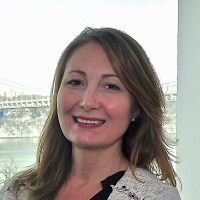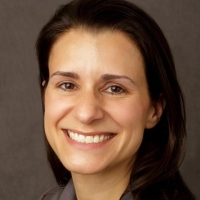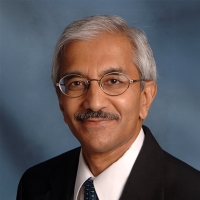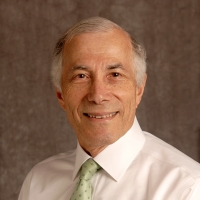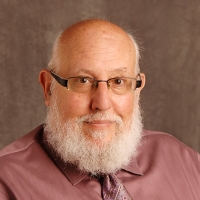Morris Stroud III. Center for Study of Quality of Life in Health and Aging
Overview
Emergence of a Center at Columbia University Medical Center: In 1968, the US-UK Diagnostic Project was formed, supported by Federal funds to investigate dramatic differences in international standards of diagnosis: Dr. Barry Gurland was the appointed Director for the USA team with a counterpart in London. The findings changed diagnostic practice and prepared the ground for criterion based nomenclatures. In 1981, the Center for Geriatrics and Gerontology, was established, with Drs. Jeanne Teresi and John Toner, as Co-Directors, joining Dr. Gurland to form the triad of leadership that continues to this day. In 1990, this leadership was joined by the preeminent Gerontological scientist of that time, the late Dr. Sidney Katz. and a generous endowment from his colleague, Dr. Morris Stroud enabled the founding of the Morris Stroud III Center and the establishment of the Sidney Katz Professorship.
The Center's mission is the Study of Quality of Life in Health and Aging: searching for the underlying choices and choosing processes that enable the formation, maintenance, and repair of personally desired Qualities of Life.
Program and Projects
Measurement and statistical development of quality of life indicators: Dr. Jeanne Teresi
- Examining measurement equivalence in measures such as the Patient Reported Outcomes Measurement
- Information System (PROMIS) short-forms
- Establishing item banks and Computerized Adaptive Testing (CAT) methodology as an infrastructure for clinicians and researchers dealing with caregiver satisfaction with end-of life care
- Evaluating item banks that include patient reported outcomes, e.g., the Mayo Clinic item bank for older acute care patients
- Identifying and disseminating evidence-based models of enhanced quality of life for residents of long-term care (NYSDOH Dementia Grants Program)
- Examining the measurement properties and relationships between self-perceived measures and biomarkers of stress and resilience
- Methods mentoring for junior faculty research scholars in the Columbia Alzheimer’s Disease Resource Center for Minority Aging Research.
Impact of the continua of cognitive and depressive symptomatology on quality of life and adverse outcomes in the community elders: Drs. Devangere Devanand and Terry Goldberg
- Study the impact of psychological, social and biological measures on multiple dimensions of quality of life in older persons.
- Evaluation of CARE assessments in the NMAP epidemiological study in order to determine the impact of measures of isolation, anergia, restriction of choices, and affective suffering on the outcomes of quality of life, cognitive decline, and dementia and the sequential timing of change in these measures
- Develop models to evaluate depression and cognition, each as a continuum, in older adults.
- Collaborate with Dr. Mann’s team in fMRI studies of social cognition in older cognitively intact individuals and develop pilot data for future larger studies.
Clinical Fellowship Program: Dr. John Toner
- A one-year full-time clinical fellowship program established in 1985 at the Center for Geriatrics that in 1991 was renamed as the Stroud Center for Study of Quality of Life at the Columbia University Medical Center in New York City.
- For recruitment and retention of high caliber geriatric psychiatrists to medically underserved non-cosmopolitan areas of NY State.
- Focused on geriatric psychiatry following the transition of the public mental health system from concentration on inpatients to integrated hospital and community mental health sites of service.
- Accredited by ACGME; successful completion leads to eligibility for Added Qualifications in Geriatric Psychiatry.
- There two ACGME-accredited tracks with an administrative base at the Columbia University Stroud Center.
- Primary training site is at Greater Binghamton Health Center in upstate New York, A Columbia Campus Track includes comparable rotation sites at the Columbia University Medical Center.
Training in the clinical interface with geriatric qualities of life: Dr. Mark Nathanson
- Interdisciplinary training for qualities of life associated with co-morbidities in aging (Psychiatric Institute Division of Geriatric Psychiatry, Elmhurst Hospital, and Cornell Dept of Psychiatry)
- Interdisciplinary Services and Education in Medically Underserved Areas: Effectiveness for qualities of life associated with aging, health, and mental health co-morbidities (The Statewide Geriatric Psychiatry Residency and Fellowship Programs, and The Statewide Geriatric Grand Round Series; The Consortium of New York Geriatric Education Centers (CNYGEC); and the Columbia-New York Geriatric Education Center)
- Curricular development in Geriatric Mental Health with focus on Quality of Life and Choices and Choosing applicable to all CUMC health science graduate students
- Participation in DSRIP funded IMP –Integrated Mental Health in Primary Care Initiative and Collaborative Care Model and Translation of Quality of Life and Choices and Choosing Models into clinical care in Ambulatory Primary Care
Kisoro Elders Project: Quality of life for older adults in rural villages of Kisoro district, Uganda: Drs. Harrison G. Bloom MD, and Patricia A. Bloom, MD
- Screening and treating health problems which negatively impact daily quality of life.
- Specifically, visual impairment, hearing deficits, mobility and pain problems, depression and dementia.
- Interventions are delivered in rural villages by trained Village Health Workers.
- Kisoro District is in the southwest corner of Uganda.
- Doctors for Global Health, Albert Einstein College of Medicine, are leading the intervention.
- Drs Patricia and Harrison Bloom, well-known geriatricians, are longstanding Stroud colleagues and are interpreting their Uganda narrative experiences in the light of Stroud quality of life understandings about restrictions of choices and choosing.
Mapping the underlying structures and processes of Qualities Of Life: Dr. Barry Gurland and Roni Gurland DBO
- There is no consensus on the definition or criteria for grades of qualities of life.
- We have argued alternatively for a focus on the integrity of processes governing quality.
- Empirical data on qualities of older life, has been gathered by the Stroud Center using our CARE evaluation of large community samples of elders.
- These data support the key role of unrestricted choices and choosing in building, maintaining and repairing the complex structures of qualities of life.
- Recent research in the neurobiological field has identified brain structures and connections that could
- underlie these critical quality of life processes.
- We are designing studies of such processes as a basis for novel approaches to treating impaired qualities of life.
Identifying biomarkers of brain plasticity. Dr. Maura Boldrini
- Relating biomarkers of brain plasticity to QoL determinants of resilience and vulnerability in the face of biopsychosocial stress exposure.
- Training MD, PhD and MD/PhD students, residents and post-docs, on research techniques aimed at identifying biomarkers of brain plasticity associated to QoL determinants related to resilience versus vulnerability to biopsychosocial stress exposure.
- This training will involve studies on brain neurobiology in vivo and in the laboratory at the Molecular Imaging and Neuropathology Division of the New York State Psychiatric Institute- Columbia University Department of Psychiatry.
Neuropsychological Investigations of Cognitive Aging. Dr. Stephanie Cosentino
- Examining subjective cognition in relation to patient centered outcomes
- Investigating the manner in which older adults adapt to cognitive and functional changes
- Developing instrumentation for assessing behavioral adaptation in the context of both healthy and pathological cognitive aging
Leadership
Members
Harrison G. Bloom, MD

Patricia A. Bloom, MD

Stephanie Cosentino, PhD
- Associate Professor of Neuropsychology (in Neurology, the Gertrude H. Sergievsky Center and the Taub Institute for Research on Alzheimer's Disease and the Aging Brain)

Davangere P Devanand, MD
- Professor of Psychiatry (in Neurology and in the Gertrude H. Sergievsky Center) at CUMC

Terry Goldwater

Barry Gurland, MB, ChB
- Sidney Katz Professor of Psychiatry in the Morris W. Stroud, III, Center for Studies on Quality of Life

Roni Gurland, DBO

J John Mann, MD
- Paul Janssen Professor of Translational Neuroscience (in Psychiatry and in Radiology)

Jeanne A. Teresi, EdD, PhD
- Assistant Professor of Medical Sciences (in Medicine) at CUMC

John A Toner, PhD, EdD

